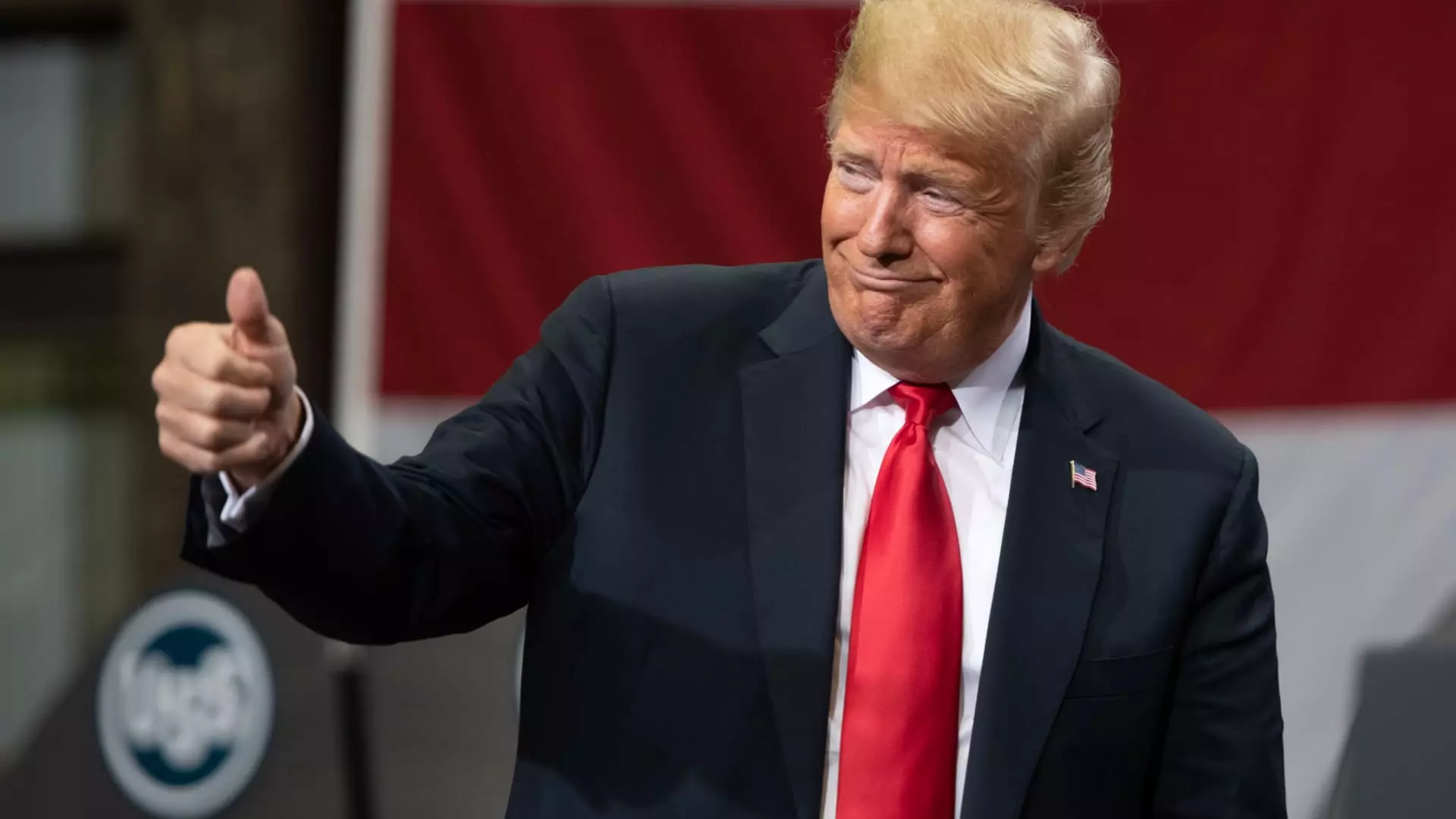5 Shocking Ways Trump’s Tweets Affected the Stock Market

In a world where social media influencers control the narrative, few can rival the impact of Donald Trump’s online presence. On a seemingly ordinary Wednesday morning, Trump fired off a message on Truth Social at 9:37 a.m. ET, declaring, “THIS IS A GREAT TIME TO BUY!!!” Within hours, the stock market experienced a dramatic shift, showcasing the unmistakable ripple effect of a tweet from a former president. Those who took this blunt advice were rewarded, but one must question the moral ramifications of such instant market manipulation—because that’s precisely what it amounts to.
Investors who acted on Trump’s proclamation were given a front-row seat to an impressive recovery for several major stocks, underscoring the often tumultuous nature of our modern stock market. Yet as they profited, a disconcerting reality looms: Are we simply allowing a flow of messages from media-hungry figures to dictate our financial decisions?
Markets React Like Clockwork
The stock market, often viewed as a rational entity governed by economic fundamentals, proved once again that it can be swayed by emotional and sensational statements. Trump’s tariffs, initially announced last week, sent the market spiraling downward with urgency. Investors were understandably unsettled. But just hours after his tweet, major stocks were free-falling—what more could they lose? The drastic exception came when Trump luxuriously rewrote the rules of engagement by announcing a rollback on certain tariffs.
For example, the SPDR S&P 500 ETF Trust soared nearly 11% that day, marking its most remarkable growth since 2008. The numbers speak for themselves: a $1,000 investment at that minute was transformed into a handsome sum of approximately $1,110, highlighting the absurd swings of investing in today’s landscape. Investor psychology is a delicate factor, and if all it takes is a simple post to send assets flying, how can one trust their investment strategies?
The Problem of Insider Knowledge
On platforms such as Reddit’s WallStreetBets, the discussion surrounding Trump’s financial forecasts revealed a polarized sentiment. While some capitalized on the insider knowledge conveyed in those few words, others denounced those actions outright, labeling them as market manipulation. The term “insider trading” floated around, mirroring the moral questions that his actions provoke. Can we allow such power in the hands of a single individual? Furthermore, what are the ethical limits of using social media platforms for economic influence?
The discourse inundated forums, with users adopting various personas to navigate the moral complexity: on one hand, individuals boasting of their ‘psychic’ investment abilities felt vindicated, whereas others saw the writing on the wall and recoiled from the market with trepidation. This inconsistency leads to a chaotic environment that jeopardizes the stability of investment.
Is It Really a Win for the Average Investor?
Let’s pivot to a crucial factor often ignored in the frenzy of stock movement: the average investor’s experience. The highs may be invigorating, but falls from such dizzying heights are equally painful—especially for everyday individuals trying to build wealth responsibly. Investors grappling with their long-term strategies often find themselves pulled into the whims of those at the top, leaving short-term gains overshadowing sound fundamental practices.
This dynamic leads to a system riddled with volatility, driven by psychological nudges rather than solid economic foundations. Yes, some may capitalize on rapid spikes, but many are merely participants in a rigged game. If today’s untouchable powerbrokers can dictate market fortunes in 280-character bursts, who is left to safeguard genuine, long-term investment for the masses?
The Tenuous Balance of Influence
So, in a nutshell, while Trump’s tweets can create astonishing market responses, we must ask: at what cost? There is an inherent risk in allowing charismatic leaders to mold perceptions and influence economic stability. With public figures like Trump holding sway over stock trades, we must vigilantly navigate the thin line between informed investing and reckless speculation.
Investors need to prepare for a future where social media might just be the new Wall Street, where effective decision-making must contend with unpredictability and viral fame rather than straightforward financial analysis. In the age of information, will we continue to be beholden to whims of the celebrity culture surrounding stock market trends?





